Abstract
The findings of the three experiments reported herein indicate that normal children can successfully teach social responses (i.e., delayed imitation cooperative play, and verbalization of positive comments) to withdrawn mentally retarded peers. The effects of the intervention generalized across stimulus and response conditions, while the trained and generalized levels of responding were maintained after the end of the intervention. Moreover, the subjects developed social responding within their classrooms and play areas parallel to the intervention and continued to increase such responding after the interruption of the intervention. Direct edible reinforcement appeared to be necessary at least during the initial period of the intervention. Vicarious edible reinforcement seemed useful to prompt the appearance of responding. Vicarious social reinforcement was ineffective at the beginning of the intervention, but apparently acquired prompting power at a later stage of training. Generalization results indicated that the similarity between the response occasions used for training and those used for testing generalization played an important role. Yet, the extensiveness of training and the development of responding within the classrooms and play areas may also have had a relevant effect. The development of social responding within the classrooms and play areas appeared to be mainly the effect of new learning. This was perhaps due to vicarious and direct social reinforcement.
Full text
PDF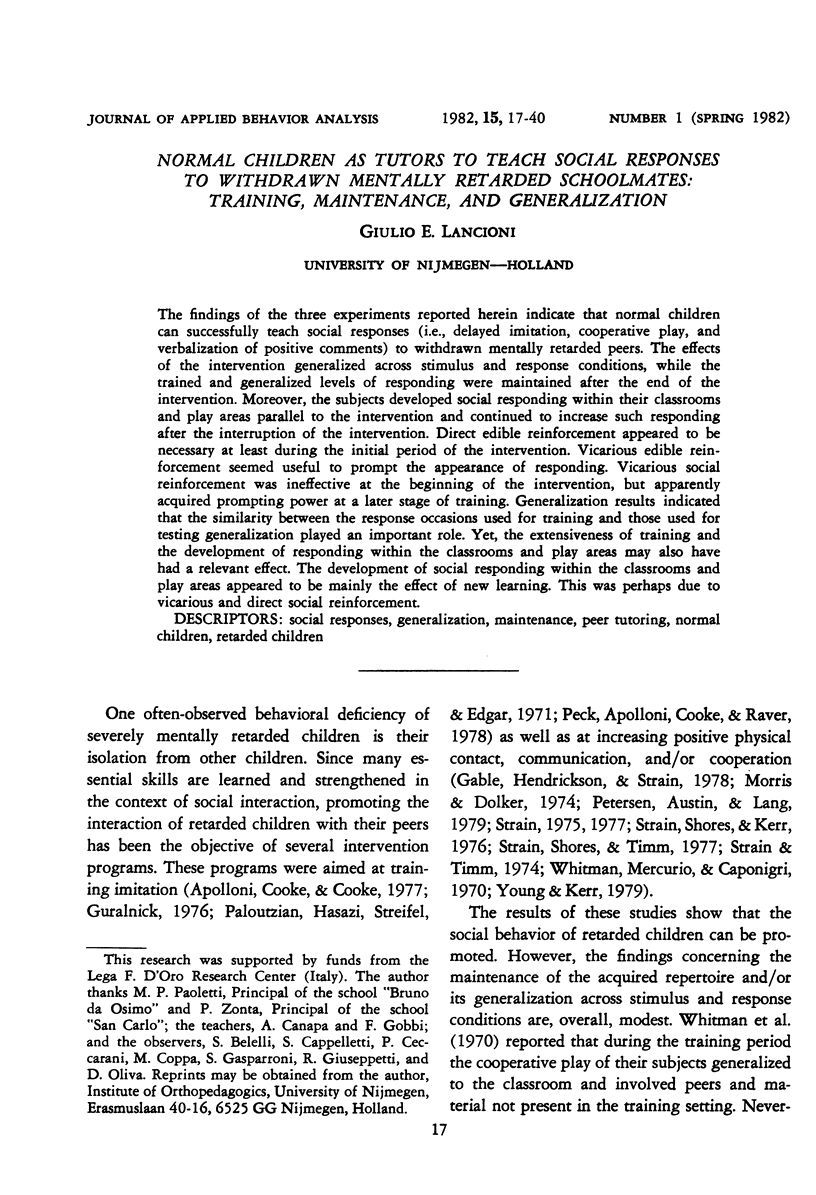
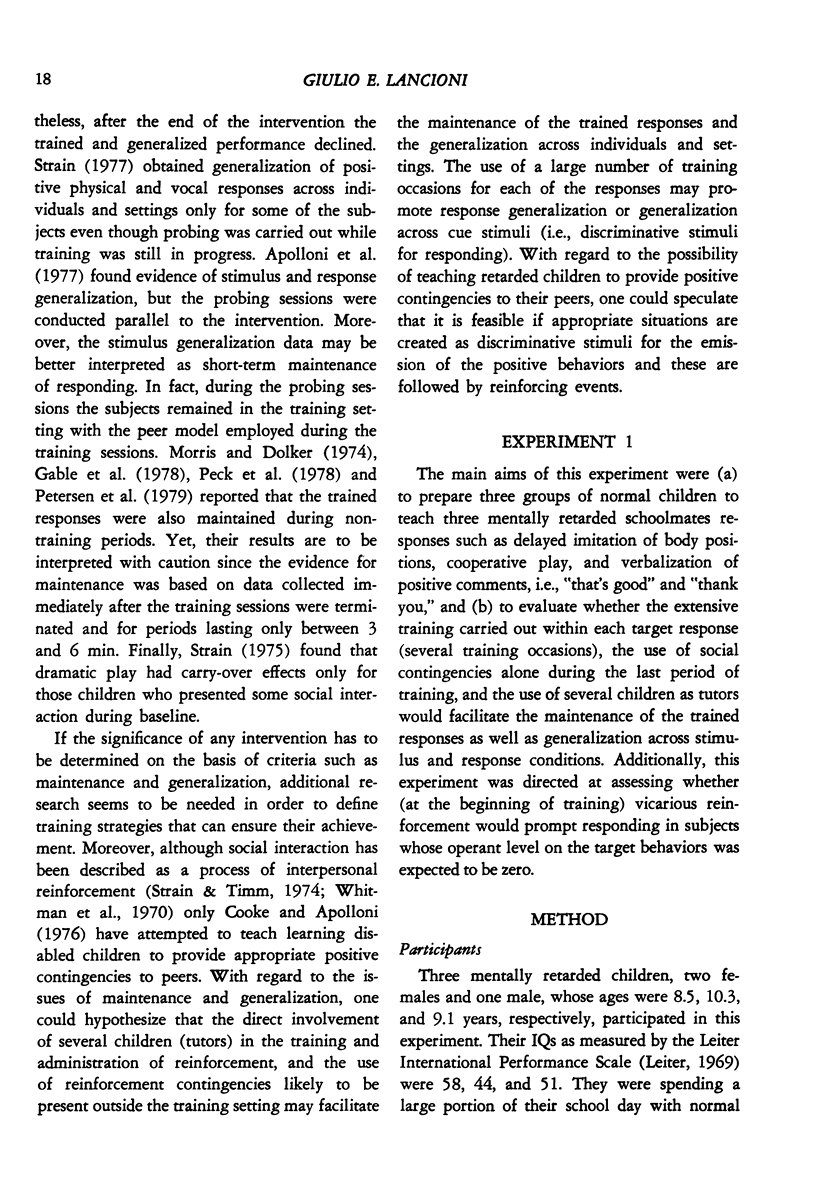
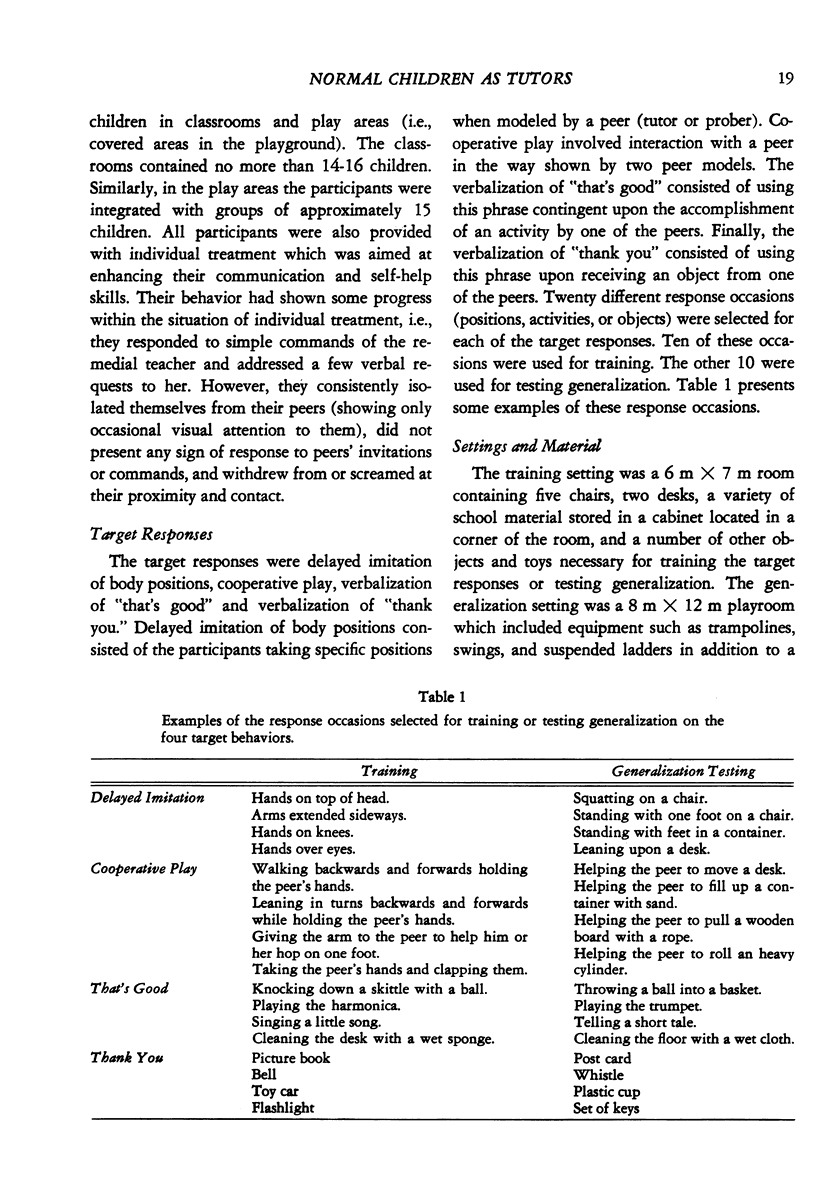
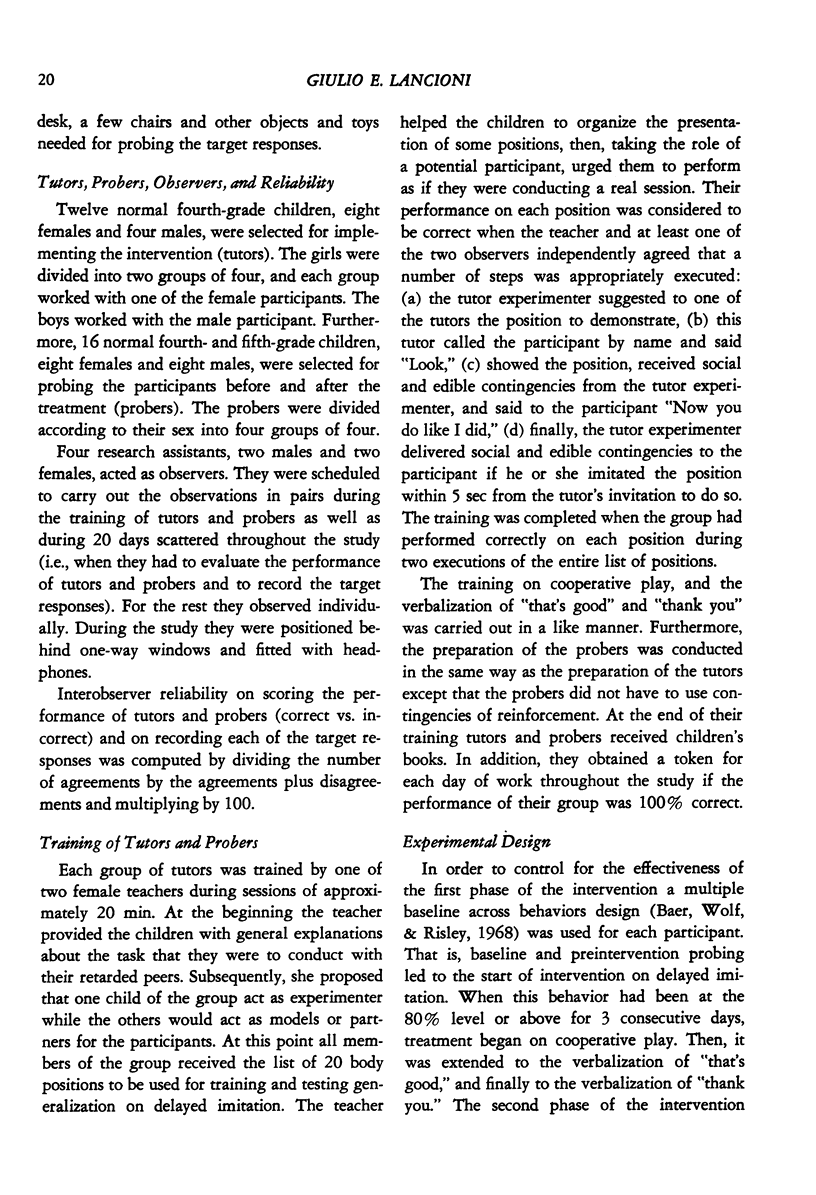
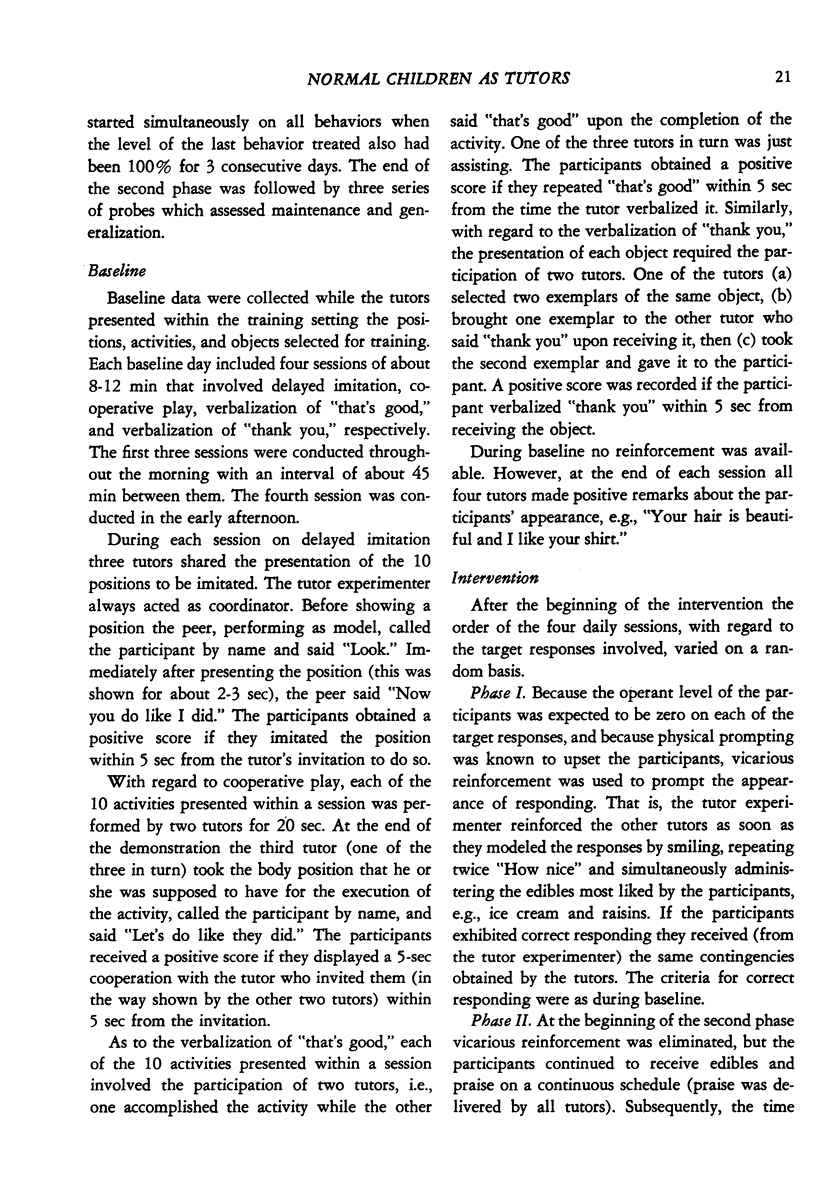
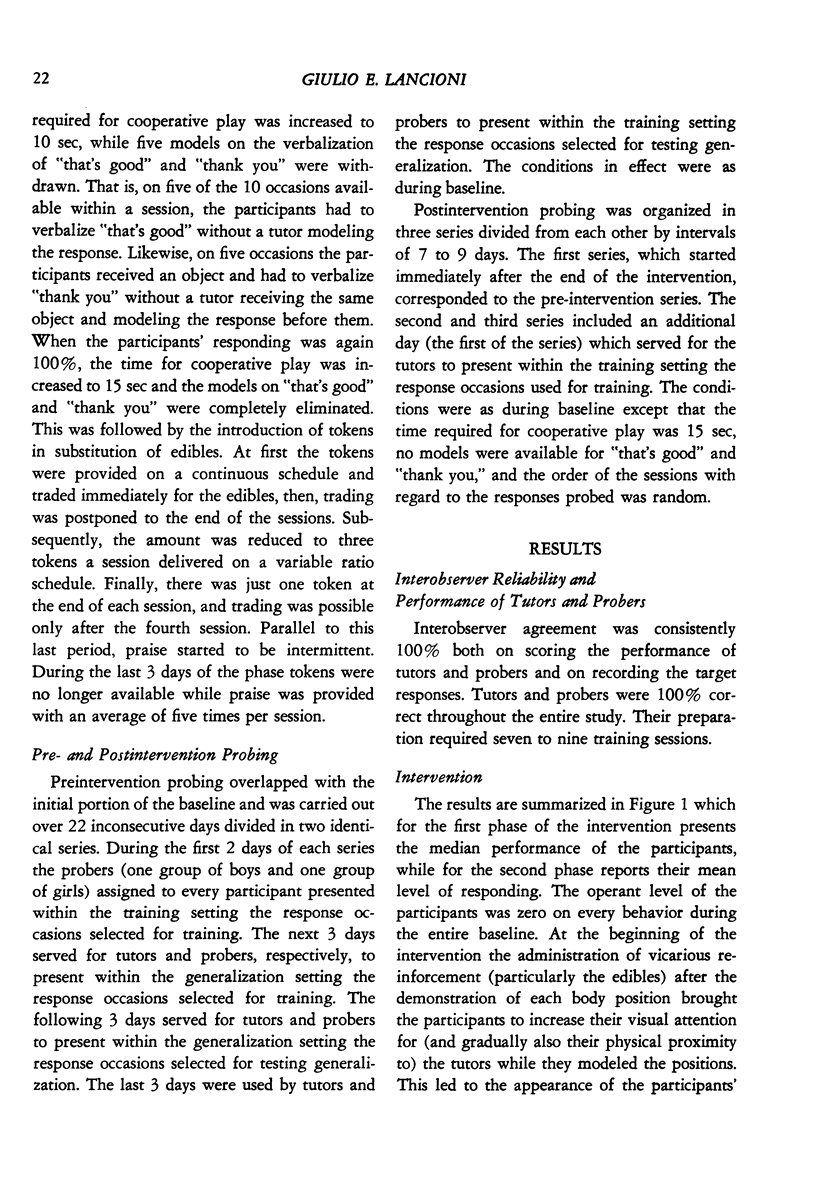
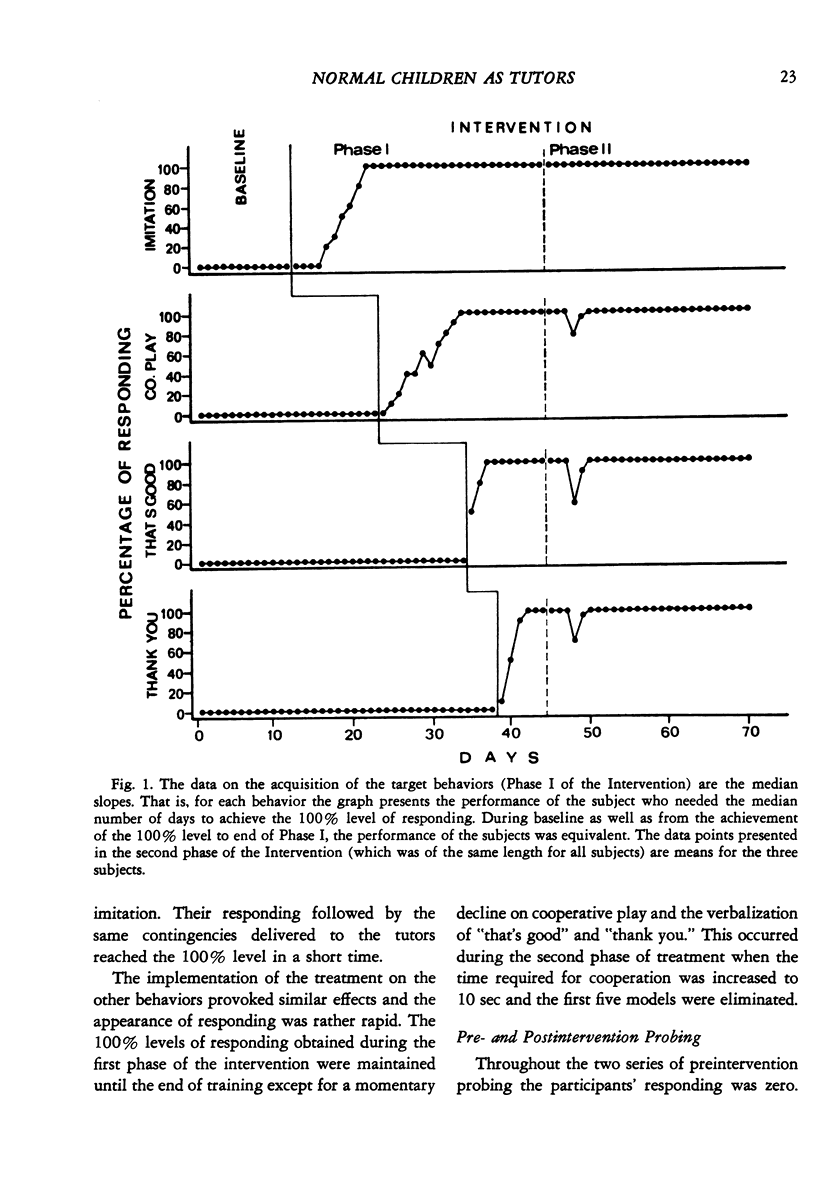
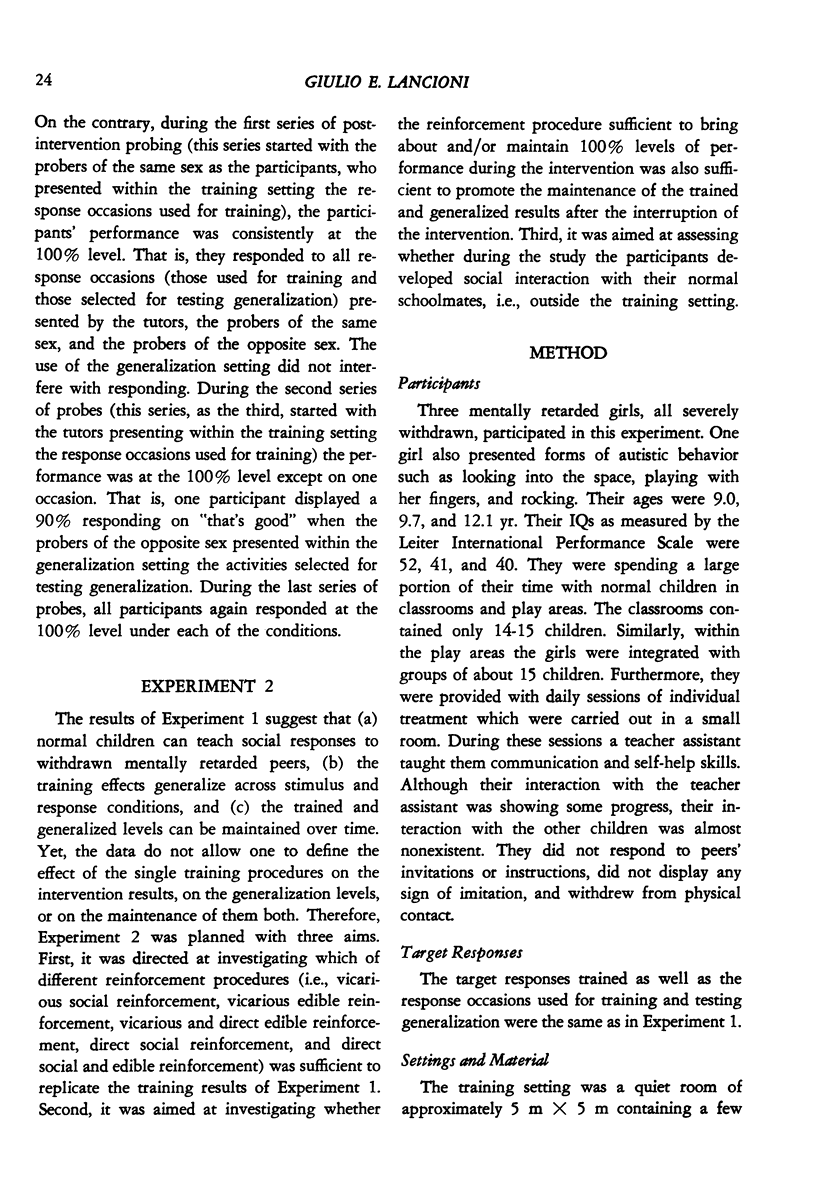
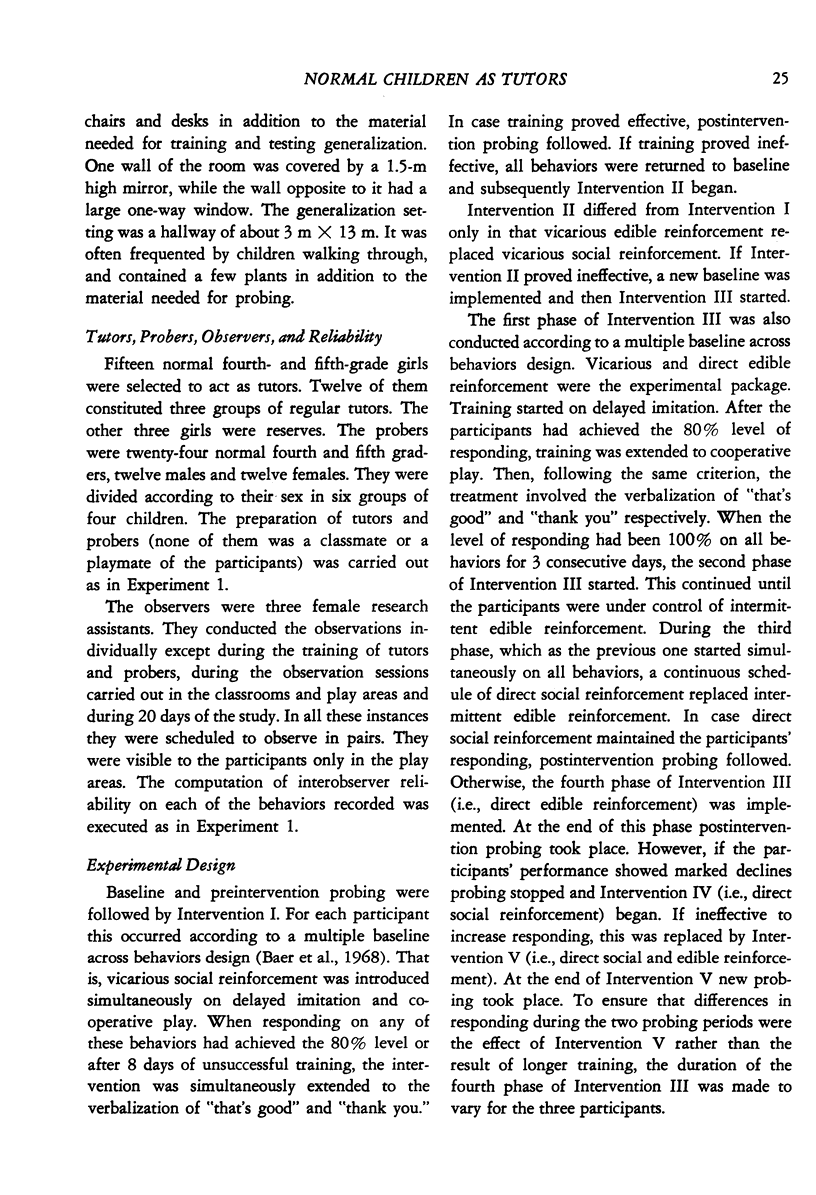
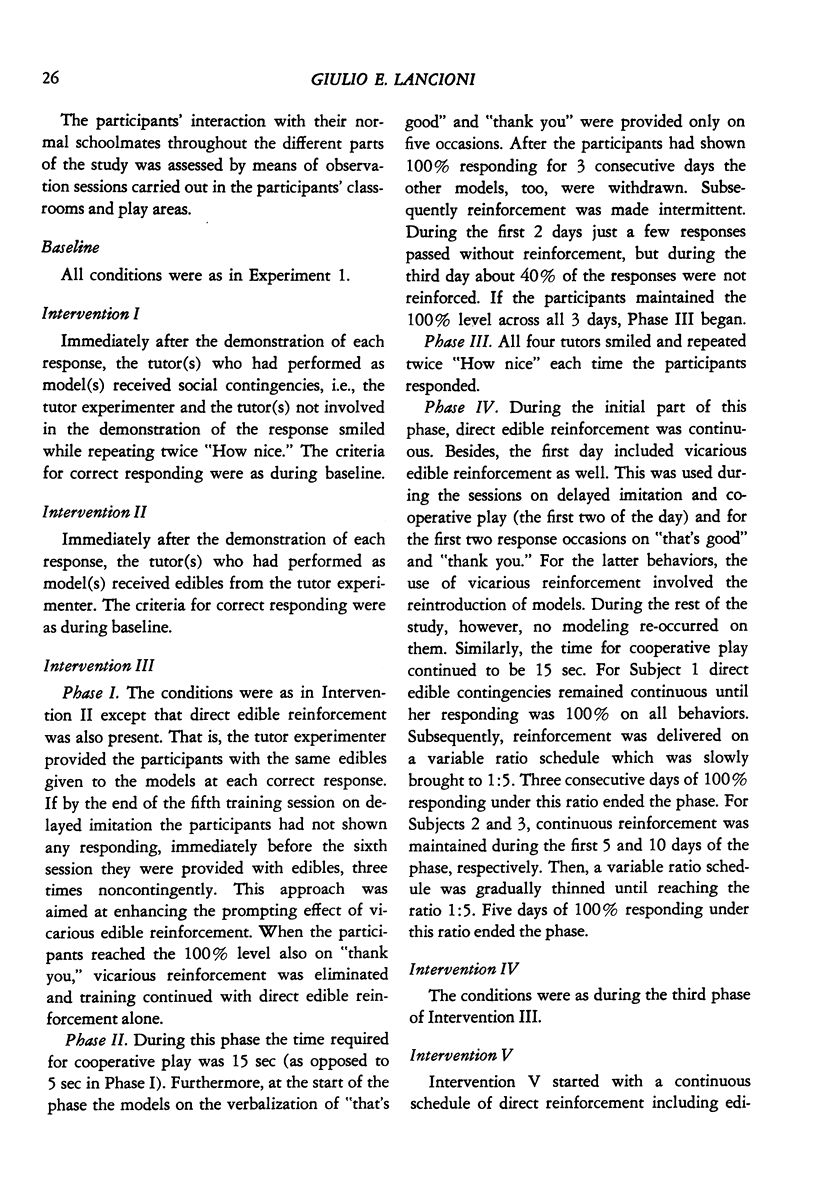
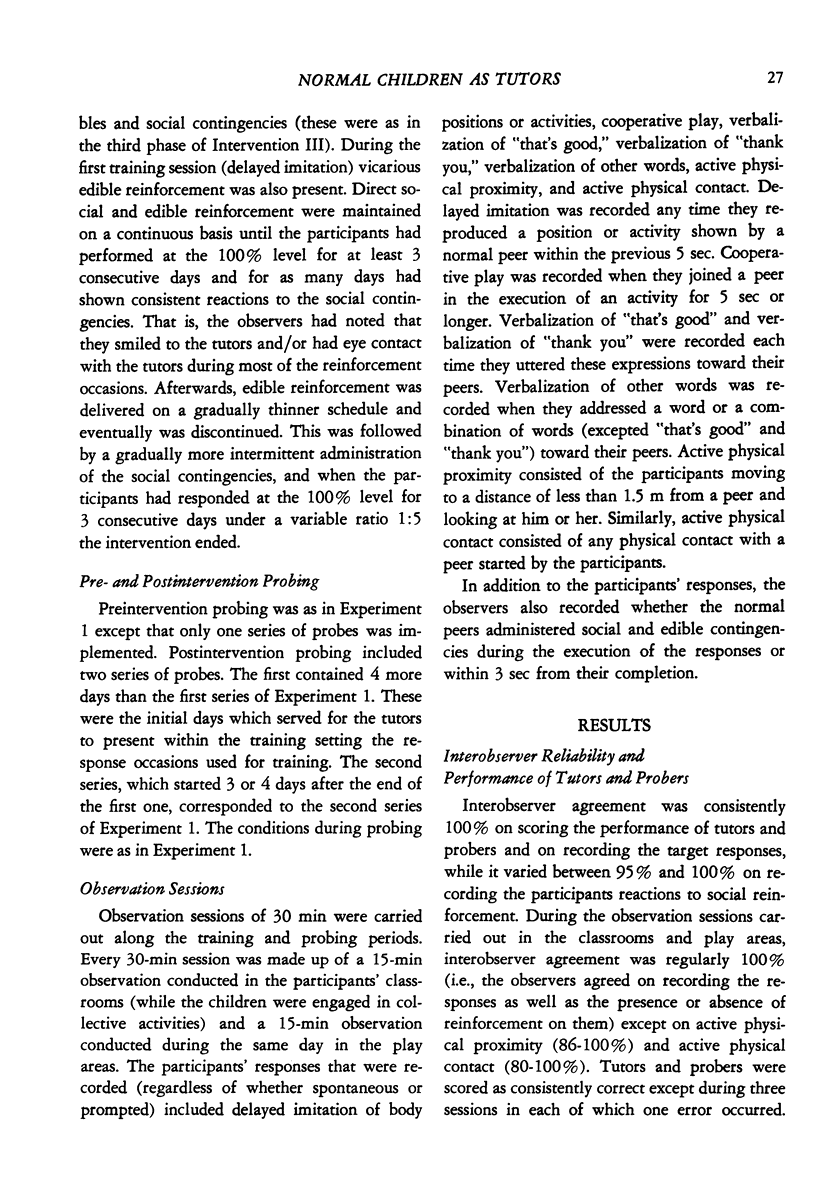
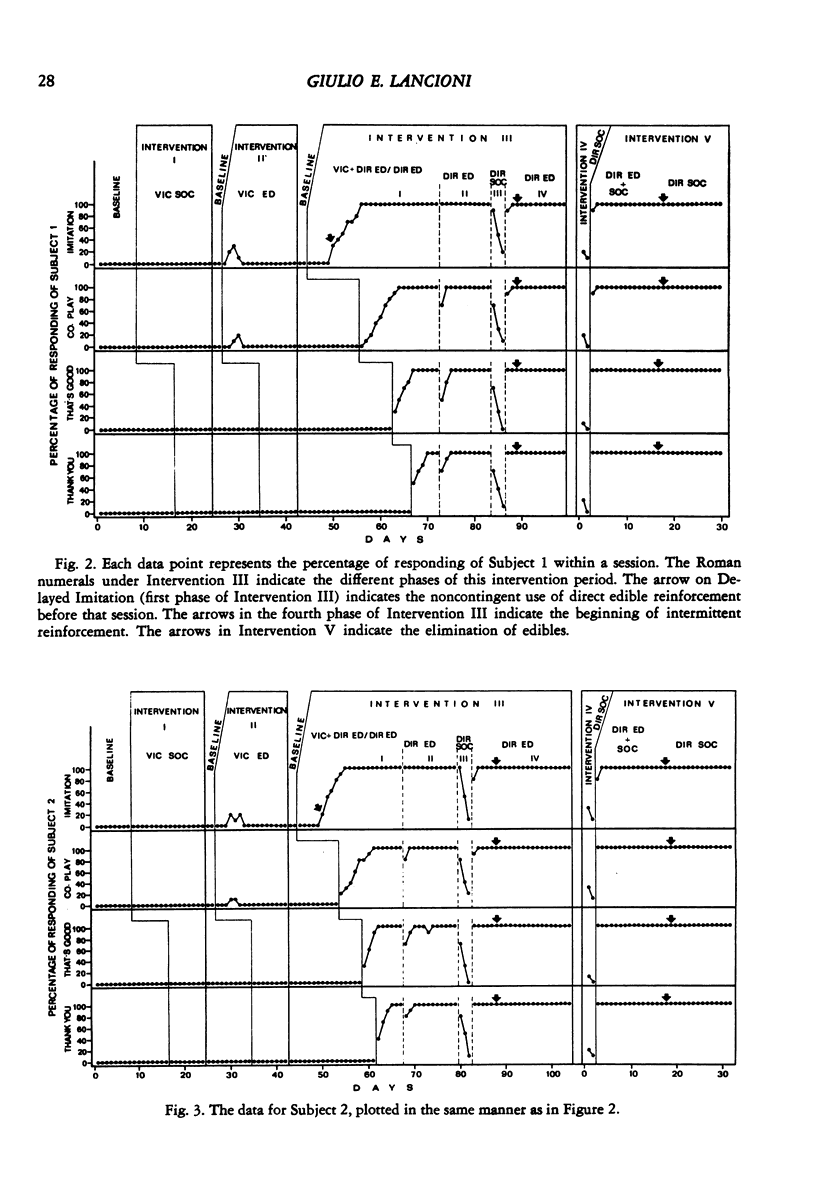
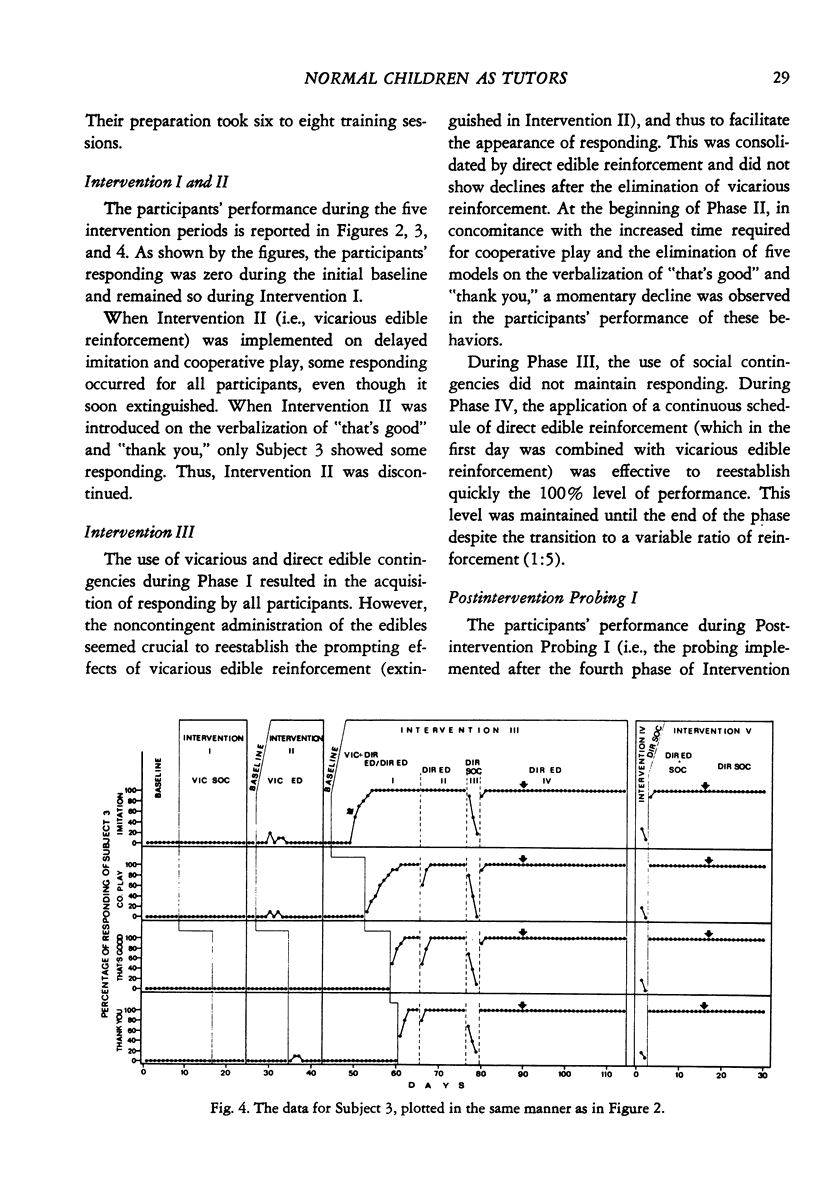
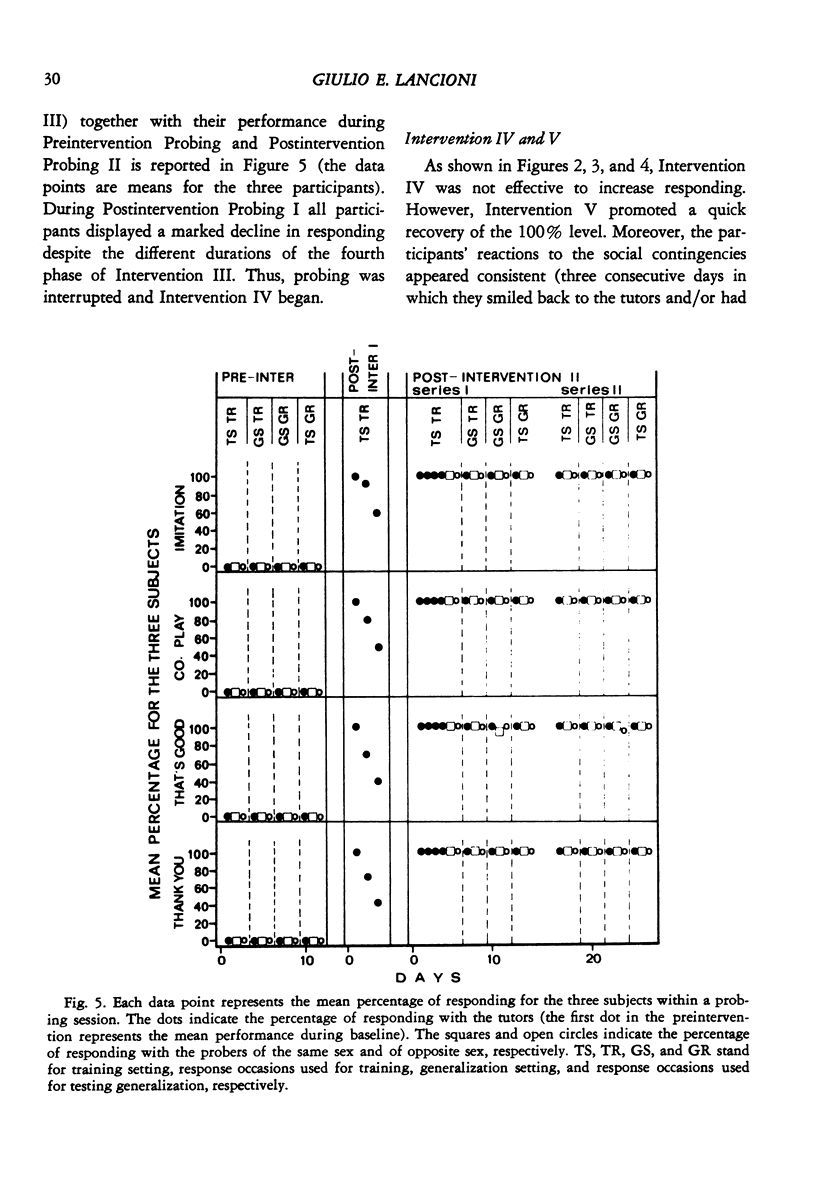
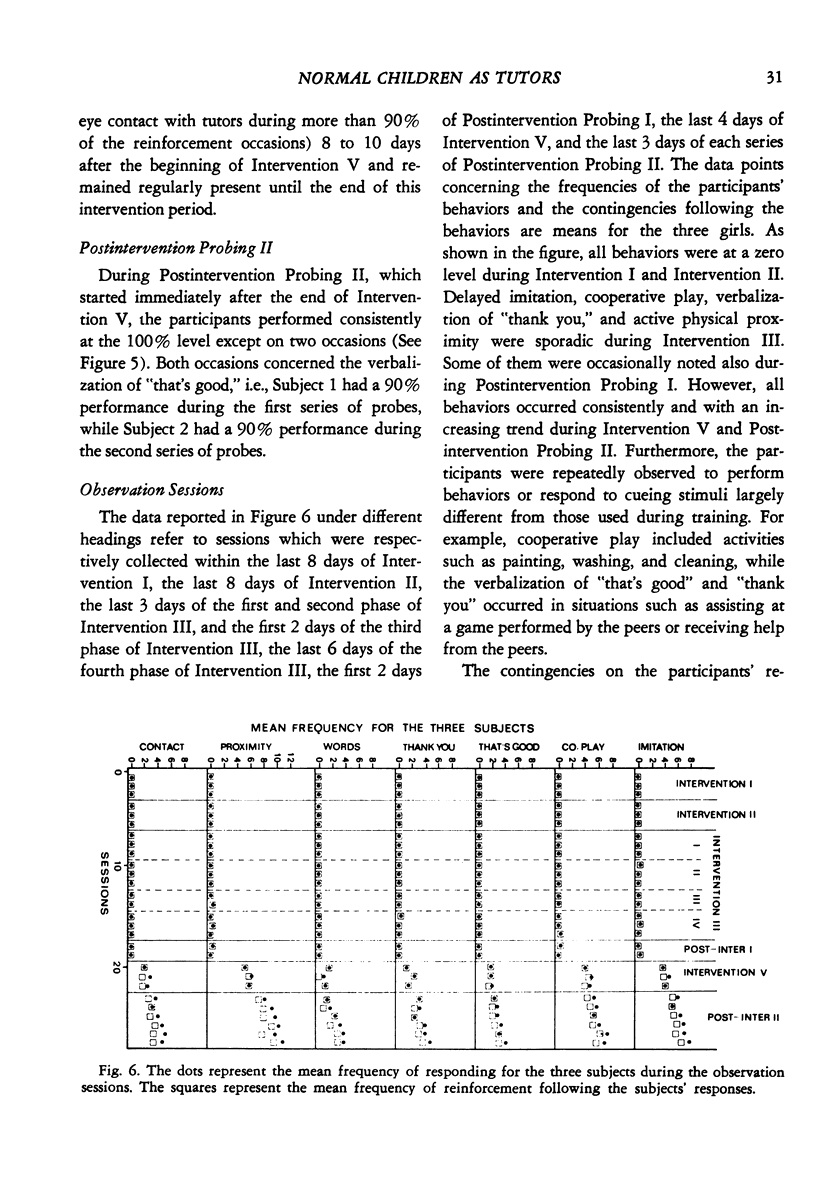
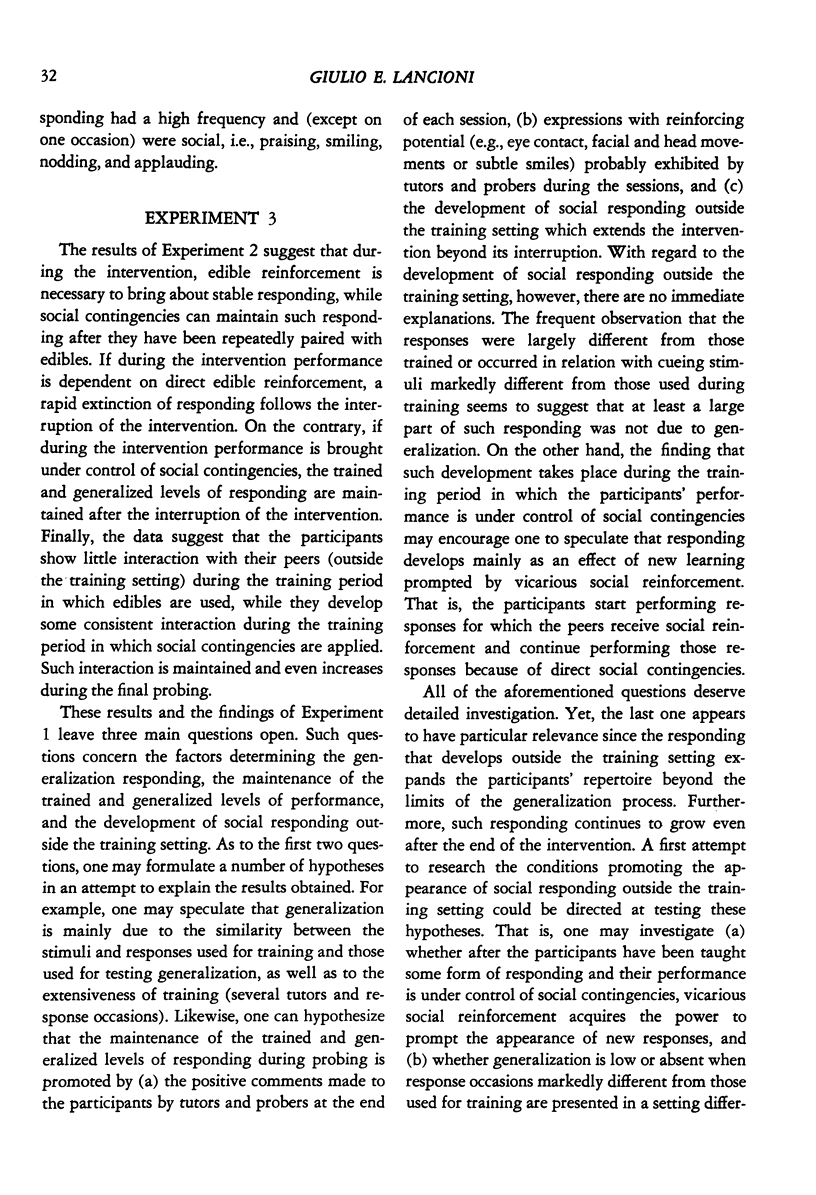
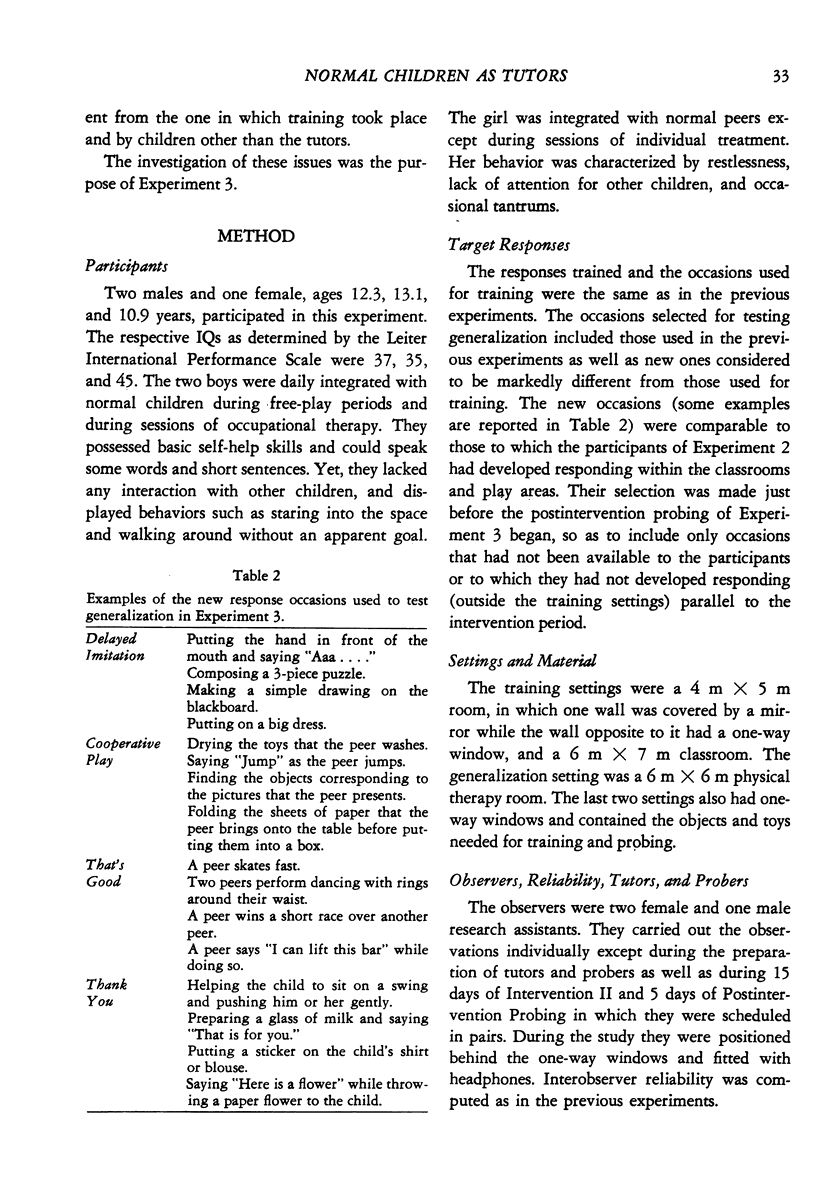
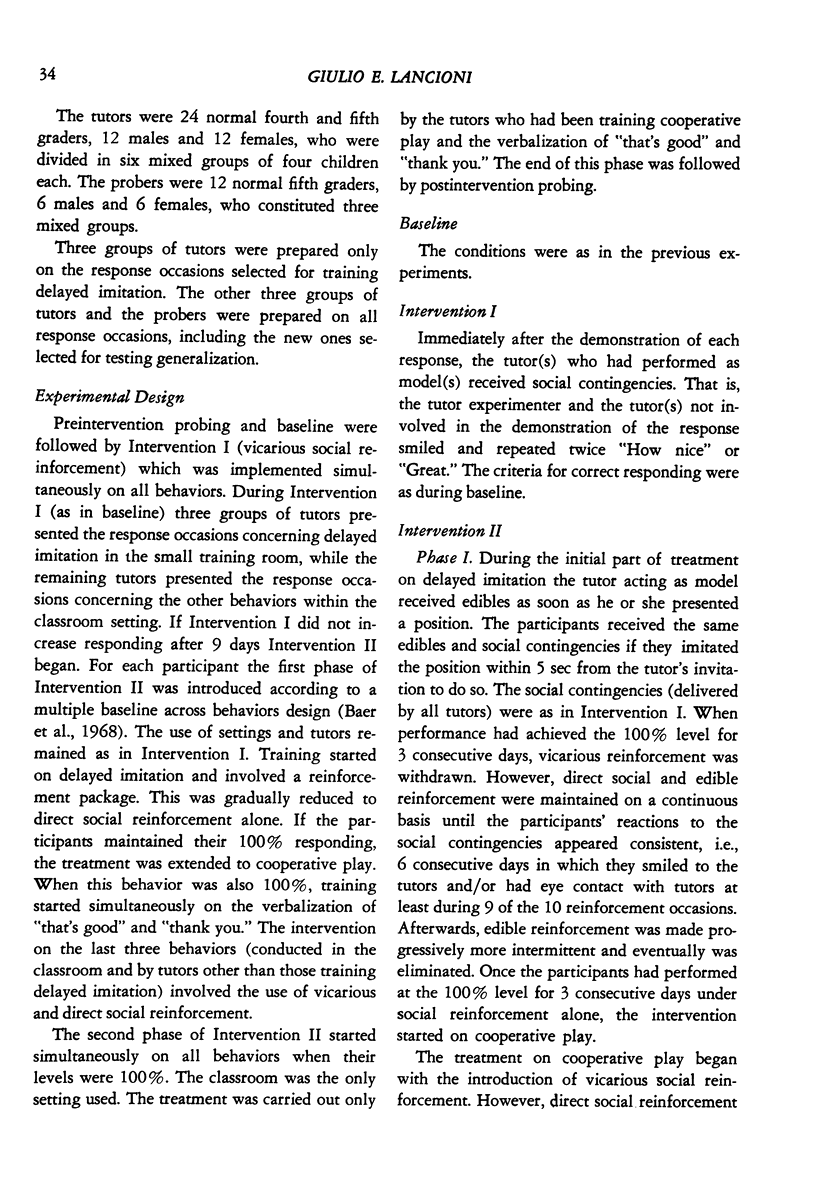
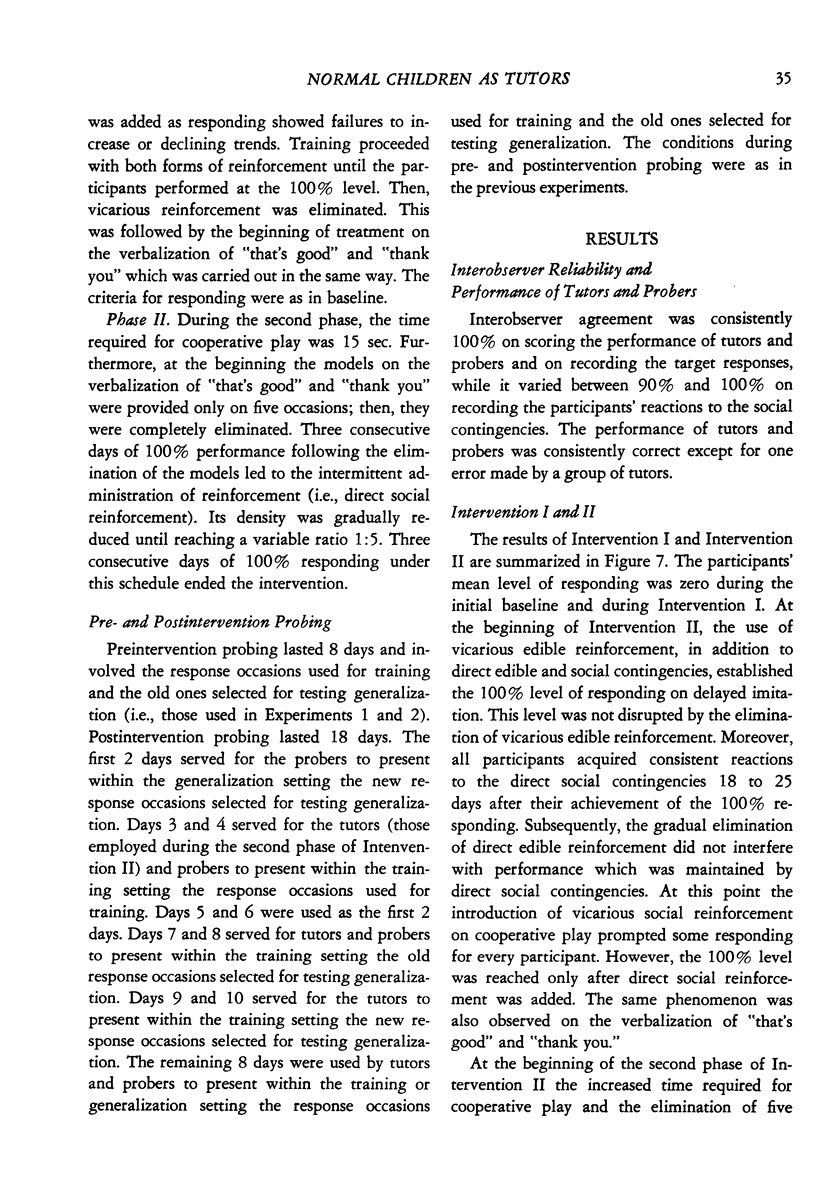
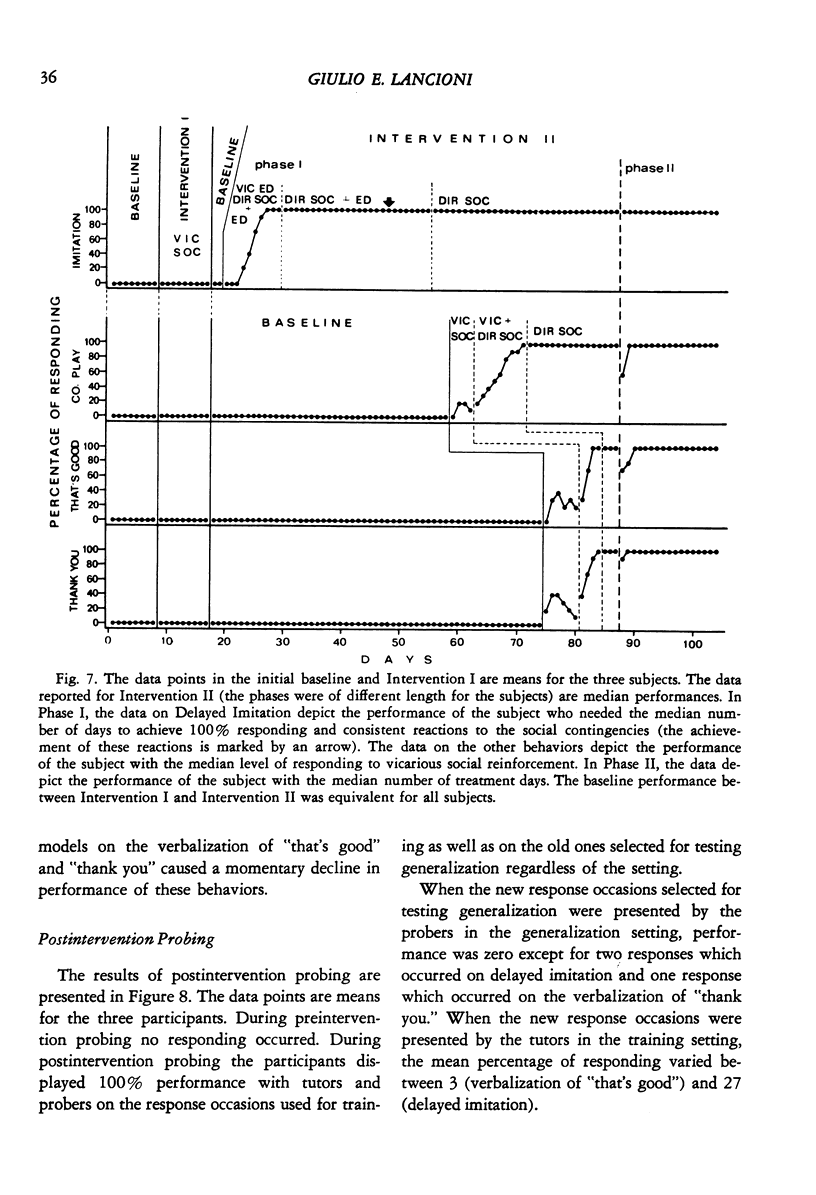
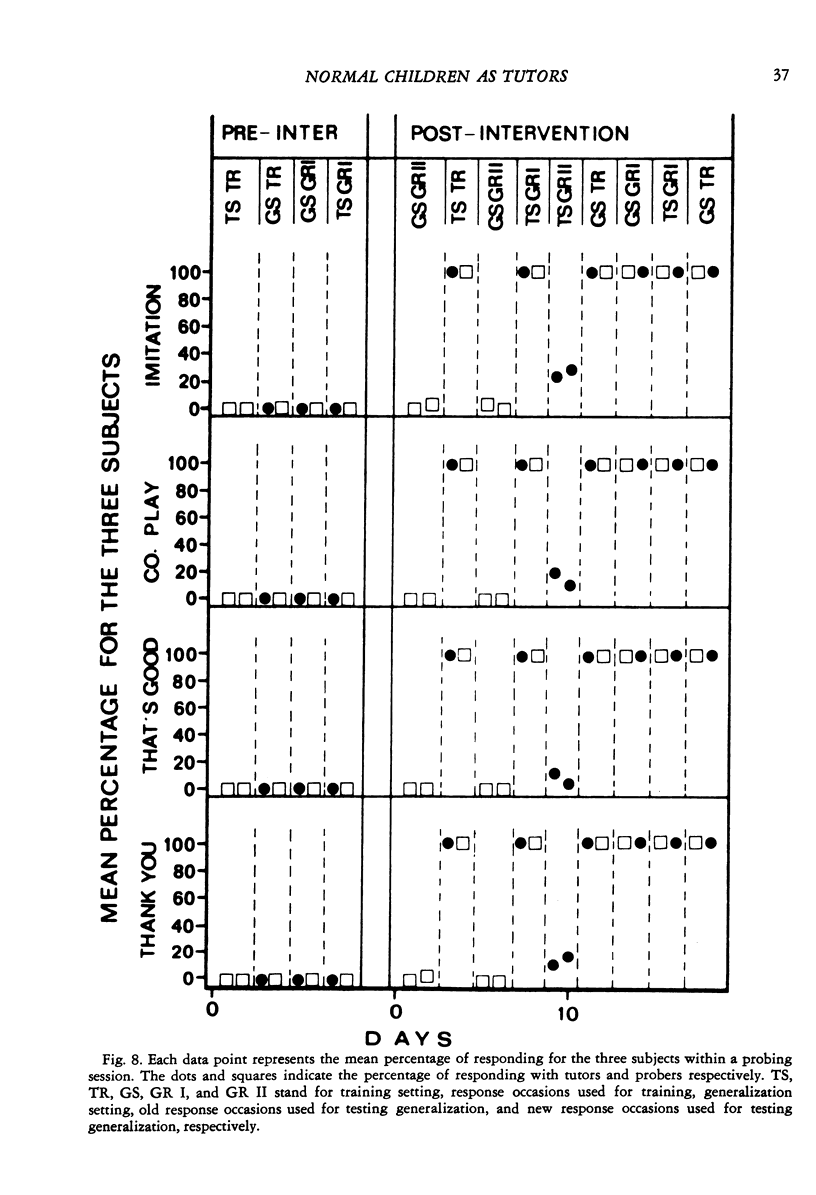
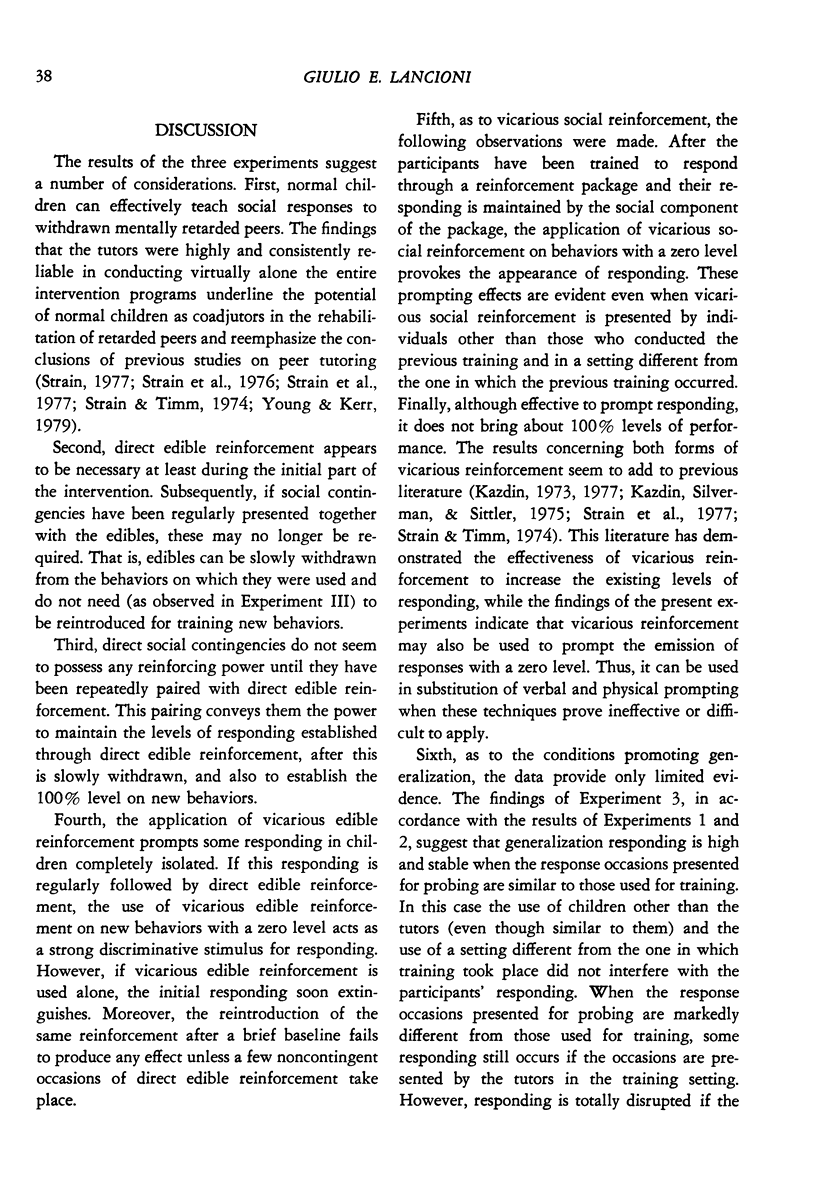
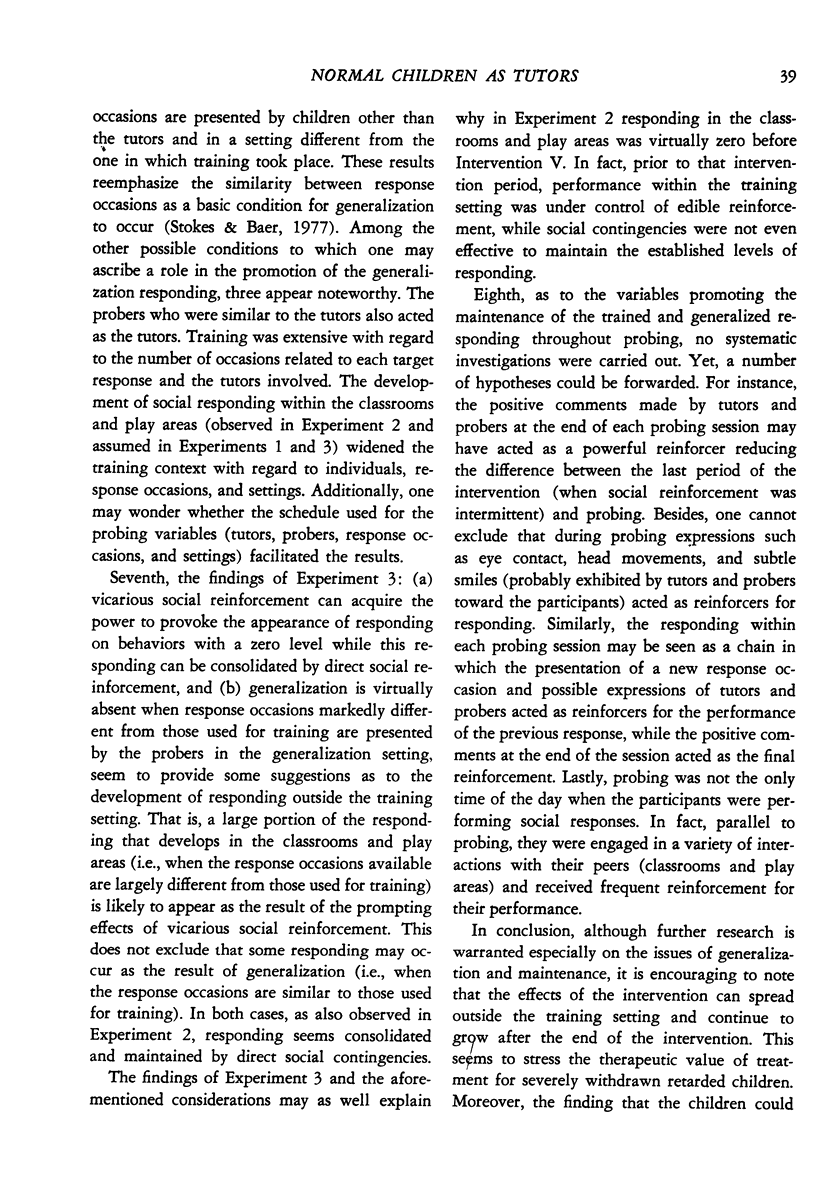
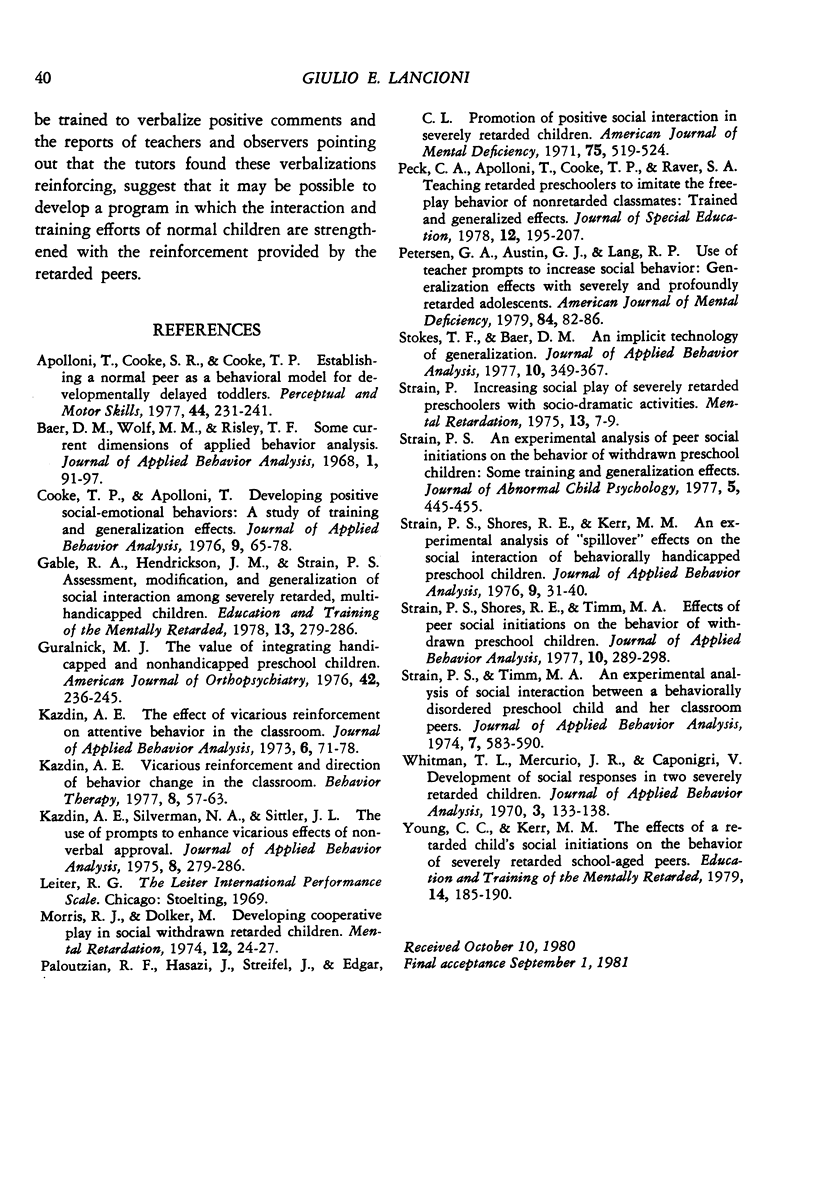
Selected References
These references are in PubMed. This may not be the complete list of references from this article.
- Apolloni T., Cooke S. A. Establishing a normal peer as a behavioral model for developmentally delayed toddlers. Percept Mot Skills. 1977 Feb;44(1):231–241. doi: 10.2466/pms.1977.44.1.231. [DOI] [PubMed] [Google Scholar]
- Baer D. M., Wolf M. M., Risley T. R. Some current dimensions of applied behavior analysis. J Appl Behav Anal. 1968 Spring;1(1):91–97. doi: 10.1901/jaba.1968.1-91. [DOI] [PMC free article] [PubMed] [Google Scholar]
- Cooke T. P., Apolloni T. Developing positive social-emotional behaviors: a study of training and generalization effects. J Appl Behav Anal. 1976 Spring;9(1):65–78. doi: 10.1901/jaba.1976.9-65. [DOI] [PMC free article] [PubMed] [Google Scholar]
- Guralnick M. J. The value of integrating handicapped and nonhandicapped preschool children. Am J Orthopsychiatry. 1976 Apr;46(2):236–245. doi: 10.1111/j.1939-0025.1976.tb00924.x. [DOI] [PubMed] [Google Scholar]
- Kazdin A. E., Silverman N. A., Sittler J. L. The use of prompts to enhance vicarious effects of nonverbal approval. J Appl Behav Anal. 1975 Fall;8(3):279–286. doi: 10.1901/jaba.1975.8-279. [DOI] [PMC free article] [PubMed] [Google Scholar]
- Kazdin A. E. The effect of vicarious reinforcement on attentive behavior in the classroom. J Appl Behav Anal. 1973 Spring;6(1):71–78. doi: 10.1901/jaba.1973.6-71. [DOI] [PMC free article] [PubMed] [Google Scholar]
- Paloutzian R. F., Hasazi J., Streifel J., Edgar C. L. Promotion of positive social interaction in severely retarded young children. Am J Ment Defic. 1971 Jan;75(4):519–524. [PubMed] [Google Scholar]
- Petersen G. A., Austin G. J., Lang R. P. Use of teacher prompts to increase social behavior: generalization effects with severely and profoundly retarded adolescents. Am J Ment Defic. 1979 Jul;84(1):82–86. [PubMed] [Google Scholar]
- Stokes T. F., Baer D. M. An implicit technology of generalization. J Appl Behav Anal. 1977 Summer;10(2):349–367. doi: 10.1901/jaba.1977.10-349. [DOI] [PMC free article] [PubMed] [Google Scholar]
- Strain P. S. An experimental analysis of peer social initiations on the behavior of withdrawn preschool children: some training and generalization effects. J Abnorm Child Psychol. 1977 Dec;5(4):445–455. doi: 10.1007/BF00915092. [DOI] [PubMed] [Google Scholar]
- Strain P. S., Shores R. E., Kerr M. M. An experimental analysis of "spillover" effects on the social interaction of behaviorally handicapped preschool children. J Appl Behav Anal. 1976 Spring;9(1):31–40. doi: 10.1901/jaba.1976.9-31. [DOI] [PMC free article] [PubMed] [Google Scholar]
- Strain P. S., Shores R. E., Timm M. A. Effects of peer social initiations on the behavior of withdrawn preschool children. J Appl Behav Anal. 1977 Summer;10(2):289–298. doi: 10.1901/jaba.1977.10-289. [DOI] [PMC free article] [PubMed] [Google Scholar]
- Strain P. S., Timm M. A. An experimental analysis of social interaction between a behaviorally disordered preschool child and her classroom peers. J Appl Behav Anal. 1974 Winter;7(4):583–590. doi: 10.1901/jaba.1974.7-583. [DOI] [PMC free article] [PubMed] [Google Scholar]
- Strain P. Increasing social play of severely retarded preschoolers with socio--dramatic activities. Ment Retard. 1975 Dec;13(6):7–9. [PubMed] [Google Scholar]
- Whitman T. L., Mercurio J. R., Caponigri V. Development of social responses in two severely retarded children. J Appl Behav Anal. 1970 Summer;3(2):133–138. doi: 10.1901/jaba.1970.3-133. [DOI] [PMC free article] [PubMed] [Google Scholar]


